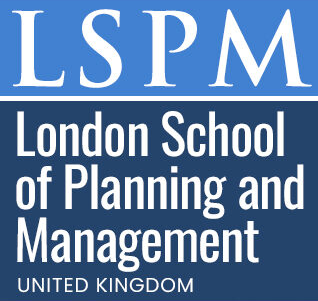Certified Professional in Financial Modeling for B Corp Startups
-- viewing nowThe Certified Professional in Financial Modeling for B Corp Startups program is designed for individuals who want to understand the financial aspects of starting and managing a B Corporation. This course provides an overview of financial modeling techniques, including cash flow projections, break-even analysis, and valuation methods.
2,767+
Students enrolled
GBP £ 149
GBP £ 215
Save 44% with our special offer
About this course
100% online
Learn from anywhere
Shareable certificate
Add to your LinkedIn profile
2 months to complete
at 2-3 hours a week
Start anytime
No waiting period
Course details
• Financial Accounting: This unit covers the basics of financial accounting, including understanding financial statements, double-entry bookkeeping, and Generally Accepted Accounting Principles (GAAP).
• Financial Analysis: This unit focuses on interpreting financial statements and using financial ratios to analyze a company's performance. It also covers cash flow analysis and forecasting.
• Financial Modeling: This unit teaches how to build financial models, including creating income statements, balance sheets, and cash flow statements. It also covers forecasting techniques and sensitivity analysis.
• Corporate Finance: This unit covers topics such as capital structure, cost of capital, and valuation. It also includes case studies on mergers and acquisitions, initial public offerings, and private equity transactions.
• Sustainable Business Practices: This unit introduces the concept of sustainability and its relevance to business practices. It covers topics such as environmental management, social responsibility, and governance (ESG).
• Impact Measurement and Management: This unit teaches how to measure and manage a company's social and environmental impact. It covers topics such as impact assessment frameworks, materiality analysis, and reporting standards.
• B Corp Certification Process: This unit provides an overview of the B Corp certification process, including eligibility criteria, assessment tools, and the requirements for becoming a certified B Corp.
• Impact Investing: This unit introduces the concept of impact investing and its role in supporting sustainable business practices. It covers topics such as impact investor criteria, deal structuring, and exit strategies.
• Social Entrepreneurship: This unit focuses on the unique challenges and opportunities of starting and running a social enterprise. It covers topics such as mission-driven leadership, stakeholder engagement, and revenue models.
Career path
Certified Professional in Financial Modeling for B Corp Startups
Financial modeling is a crucial skill for startups, especially those seeking B Corp certification. This section provides an overview of the job market trends, salary ranges, and skill demand for Certified Professionals in Financial Modeling for B Corp Startups in the UK.
The job market for financial modeling in B Corp startups is growing rapidly, with a significant demand for professionals with expertise in this field. The chart above shows that financial analysts are currently the most in-demand role, followed by investment analysts. Business analysts and data analysts also have a presence in this niche market.
Salaries for these roles vary depending on experience and location. However, according to a recent survey, Certified Professionals in Financial Modeling for B Corp Startups in the UK can expect to earn an average salary of £50,000 per year.
To become a Certified Professional in Financial Modeling for B Corp Startups, one must complete a rigorous certification program that covers topics such as financial statement analysis, discounted cash flow analysis, and scenario modeling. This certification demonstrates a high level of expertise and commitment to sustainable business practices, making it a valuable asset for professionals in this field.
Career Roles
- Financial Analyst: Responsible for creating financial models, analyzing financial data, and providing insights to help businesses make informed decisions.
- Investment Analyst: Focuses on evaluating investment opportunities and making recommendations to investors based on financial models and market analysis.
- Business Analyst: Works closely with stakeholders to understand business requirements and uses financial models to support decision-making processes.
- Data Analyst: Collects, cleans, and analyzes financial data using statistical models and programming languages to identify trends and insights.
Entry requirements
- Basic understanding of the subject matter
- Proficiency in English language
- Computer and internet access
- Basic computer skills
- Dedication to complete the course
No prior formal qualifications required. Course designed for accessibility.
Course status
This course provides practical knowledge and skills for professional development. It is:
- Not accredited by a recognized body
- Not regulated by an authorized institution
- Complementary to formal qualifications
You'll receive a certificate of completion upon successfully finishing the course.
Why people choose us for their career
Loading reviews...
Frequently Asked Questions
Course fee
- 3-4 hours per week
- Early certificate delivery
- Open enrollment - start anytime
- 2-3 hours per week
- Regular certificate delivery
- Open enrollment - start anytime
- Full course access
- Digital certificate
- Course materials
Get course information
Earn a career certificate

